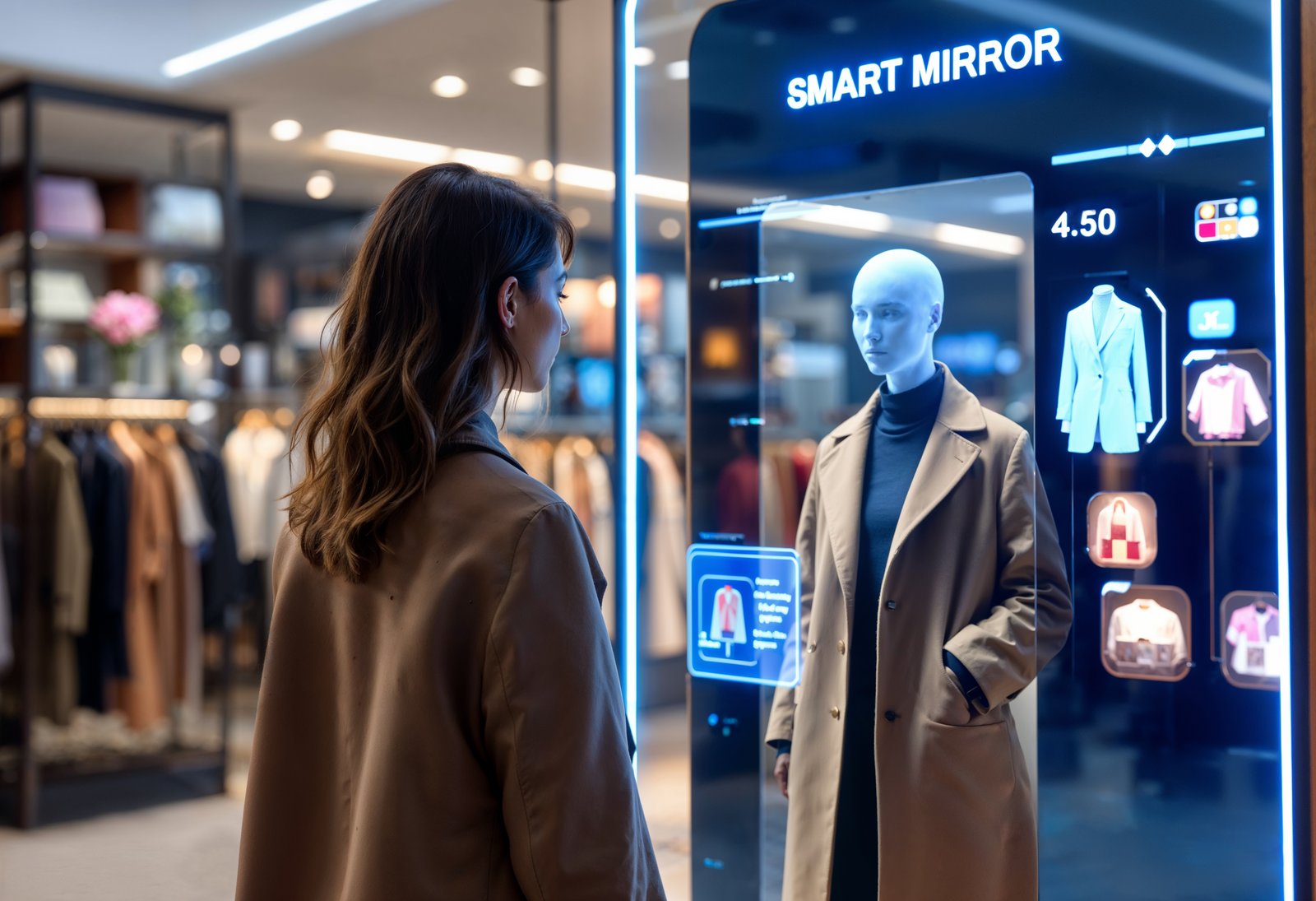
Personalization in FMCG: How Consumer Data Is Reshaping Product Development
The FMCG industry has always been about speed—fast-moving goods for fast-moving people. But in 2025, “fast” alone isn’t enough. Today’s shoppers want more than convenience; they want relevance. They want their morning cereal to know their diet, their shampoo to fit their hair type, and their snacks to align with their lifestyle choices. Enter the age of FMCG personalization, where brands are rewriting the rules of product development, guided not by guesswork but by the rich treasure trove of consumer insights.
And let’s be honest—it’s not just about brands being nice. It’s about survival. With shelves crowded (both physical and digital), product differentiation is no longer about adding “new & improved” on the label. It’s about building products that feel like they were designed for one person: the shopper standing in front of that shelf.
This is where Blackwater, a forward-looking market research company, becomes a brand’s secret ingredient. With its ability to decode evolving shopper behavior, Blackwater equips FMCG brands to not just keep pace with consumer demand but actually stay three steps ahead.
Let’s dive into how personalization is reshaping product development, why data is the new recipe, and what it means for the FMCG industry.
From Mass-Market to “My Market”
The FMCG industry was built on mass production and economies of scale. For decades, the logic was simple: make one product that appeals to millions, blast it across TV screens, and watch sales skyrocket. But today, the “spray-and-pray” strategy has hit a wall. Shoppers are fragmented across geographies, cultures, and lifestyles. They’re health-conscious, eco-conscious, time-conscious, and—let’s admit—advertising-conscious.
This shift has sparked a movement from mass-market to ‘my market’, where FMCG personalization is no longer a marketing gimmick but the new baseline expectation. Whether it’s a personalized label on a soda bottle or a skincare routine tailored to your skin microbiome, consumers want to feel that products are made with them in mind.
Here, consumer insights act as the compass. By analyzing what people buy, when they buy it, and why they buy it, brands can create hyper-targeted offerings that resonate deeply. In other words, instead of making products for “everyone,” FMCG companies are making products for “someone”—a very specific someone.
Why Consumer Data Is the New Superfood
If product innovation is the dish, consumer data is the superfood ingredient making it possible. Modern shoppers generate endless signals—from online searches and eCommerce clicks to loyalty cards, wearables, and even smart fridges. All of this feeds into an ecosystem of consumer insights that FMCG brands can mine for gold.
For example, by analyzing purchase histories, a brand can spot that urban millennials are ditching sugary sodas for functional beverages with vitamins. Or, by tracking shopper behavior online, companies can discover that rural consumers are embracing e-commerce faster than expected, demanding pack sizes suited to delivery economics.
This data-driven approach means brands no longer have to rely on focus groups that say one thing but do another. Instead, they can observe real-time behavior, map preferences, and act on them. Blackwater, with its sharp lens on market dynamics, enables brands to translate these data points into actionable strategies. It’s one thing to know people are buying oat milk; it’s another to know why they’re buying it, and how to innovate your next dairy-alternative product to win loyalty.
Product Innovation: Built on Insights, Not Instincts
Gone are the days when product innovation was driven by a “gut feeling” from the R&D head or a catchy idea from the ad agency. Today, successful product innovation is anchored in data-backed decisions.
Take personalized nutrition, one of the hottest categories in FMCG personalization. Brands are developing protein bars tailored to fitness levels, meal kits designed around dietary restrictions, and supplements informed by genetic testing. These innovations aren’t just lucky guesses—they’re responses to clear signals from consumer data.
Even in beauty and personal care, data-driven personalization is rampant. Shoppers can now take online quizzes about their skin type or hair goals, and the brand ships a product formulated specifically for them. This tight coupling between consumer insights and product innovation creates not just better products, but better loyalty loops. After all, if a product feels like it was made for you, why would you switch to another?
Blackwater’s role here is crucial. It helps brands avoid the pitfall of chasing every micro-trend. Instead, it identifies sustainable shifts in shopper behavior that warrant investment. In a market where “kombucha today, collagen water tomorrow” is the norm, knowing which trend will stick makes the difference between a hit product and a warehouse full of unsold stock.
Shopper Behavior: The Invisible Hand Guiding the Shelf
Shoppers are famously fickle. They say they want low sugar but reach for chocolate. They promise to support sustainable packaging but still prefer convenience. Understanding this tension is the art and science of FMCG personalization.
Shopper behavior is no longer just about what goes into the basket, but how it gets there. Are consumers browsing online first and then buying in-store? Are they influenced by TikTok reviews more than TV ads? Do they abandon a cart because delivery takes 48 hours instead of 24? These behavioral insights shape not only product development but also packaging, pricing, and promotion.
Blackwater decodes this complexity. By mapping shopper journeys, both digital and physical, it gives FMCG brands a blueprint of how decisions are made. For example, it might reveal that urban Gen Z shoppers care less about brand legacy and more about “vibe”—leading brands to design products that look as good on Instagram as they taste.
Technology: The Engine Behind Personalization
Of course, none of this would be possible without technology. Artificial intelligence, machine learning, and predictive analytics are transforming personalization from a manual art into a scalable science.
Imagine an AI that predicts what flavors of chips will trend next year based on social media chatter. Or a machine learning model that identifies correlations between weather data and ice cream sales, helping brands design regional campaigns. Technology turns consumer insights into foresight, powering product innovation that feels ahead of the curve.
Even supply chains are adapting. Flexible manufacturing and 3D printing allow companies to roll out small-batch personalized products without massive cost burdens. In short, technology makes personalization profitable.
The Emotional Connection: Beyond Just Data
Here’s the irony—while data fuels FMCG personalization, the end goal is emotional. People don’t buy products just because they match their preferences; they buy because they feel seen. When a shampoo says “for curly-haired queens” or a snack is designed “for your mid-day slump,” consumers feel a bond.
This emotional layer is where personalization transcends mere convenience. It creates brand loyalty, word-of-mouth advocacy, and even cultural movements. Think of Coca-Cola’s “Share a Coke” campaign, where personalized names on bottles sparked viral engagement. That wasn’t just personalization—it was identity.
Blackwater helps brands strike this delicate balance: data-driven precision wrapped in emotional resonance. After all, numbers tell you what people do; emotions tell you why they do it.
Challenges in FMCG Personalization
Of course, personalization isn’t all sunshine and soy lattes. There are hurdles. Data privacy concerns loom large. Consumers want personalization but also want to know their data is safe. At the same time, scaling personalization without ballooning costs remains tricky.
Then there’s the risk of over-personalization—bombarding shoppers with “perfectly tailored” products to the point of fatigue. The key is subtlety: personalization should delight, not overwhelm.
Blackwater guides brands through these challenges, offering frameworks that balance innovation with practicality, personalization with privacy. It ensures personalization remains a strategic advantage, not a costly distraction.
Why Blackwater Is the Game-Changer
So where does Blackwater fit into this grand personalization puzzle? Simply put: it’s the strategist behind the scenes, the data whisperer turning noise into clarity.
Blackwater’s expertise lies in connecting dots—between consumer insights and shopper behavior, between raw data and refined strategy. Its research frameworks don’t just tell brands what’s happening; they explain why it’s happening and what to do about it.
In a world where FMCG personalization is both an opportunity and a minefield, Blackwater is the partner that ensures brands innovate wisely. From spotting trends before they peak to testing concepts with precision, Blackwater makes sure product innovation is guided by insight, not impulse.
The Future of FMCG Personalization
The future promises even deeper personalization. Think DNA-based diets, AR-powered shopping experiences, and FMCG products that adapt in real-time to consumer moods. But the guiding principle will remain the same: relevance wins.
Brands that harness consumer insights, design smart product innovation, and respect shopper behavior will thrive. Those who ignore personalization will risk becoming irrelevant, gathering dust on shelves both physical and digital.
And with Blackwater as their compass, FMCG brands won’t just survive this transformation—they’ll lead it.
Conclusion
The FMCG industry is at a turning point. Personalization is no longer a luxury; it’s a necessity. Driven by consumer data, brands are shifting from one-size-fits-all products to hyper-relevant innovations that feel tailor-made. FMCG personalization powered by consumer insights, product innovation, and a deep understanding of shopper behavior is rewriting the rules of the game.
Blackwater stands at the heart of this revolution. As a market research company, it provides the clarity, foresight, and strategy FMCG brands need to navigate personalization without losing their way. Because in the end, the future of FMCG belongs not to the fastest, but to the most relevant. And relevance is exactly what Blackwater delivers.



